
Categories
Thanksgiving Red Butte Garden Style
Submitted: Nov. 22, 2022, 3:07 p.m.
Many people celebrate Thanksgiving by having a giant feast, and even though we may not have all the ingredients at the Garden for the whole dinner, we do have enough to throw our own Red Butte Garden style Thanksgiving.
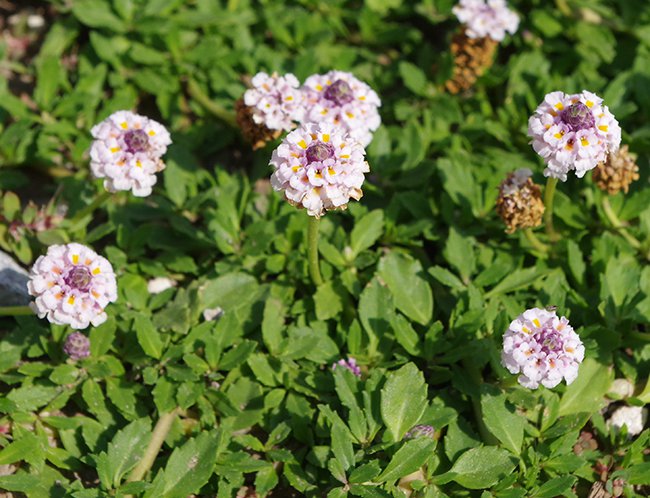
Turkey Tangle (Phyla nodiflora)
Don't ask me how it got the name Turkey Tangle, but it's the only thing we have in the Garden with the word turkey in it.
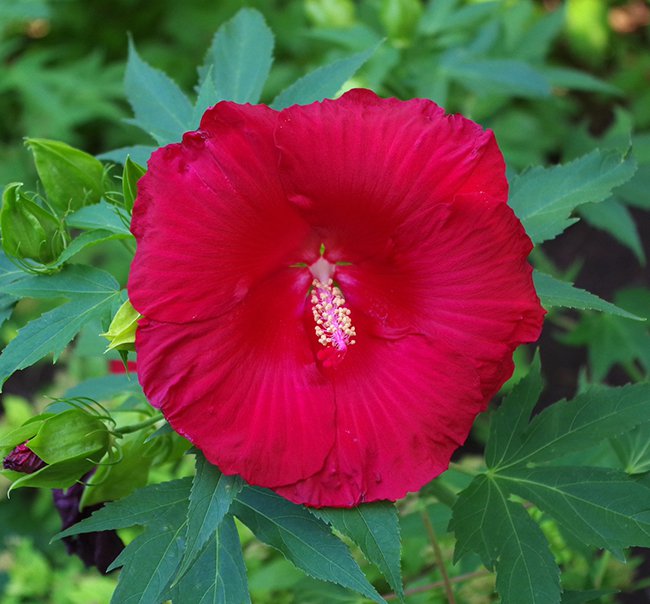
Cranberry Crush Hibiscus (Hibiscus 'Cranberry Crush')
And like turkeys, we also don't have any actual cranberry plants. Cranberries belong to the genus Vaccinium and only grow in bogs. You may be familiar with other Vaccinium species like blueberries, huckleberries, and lingonberries.
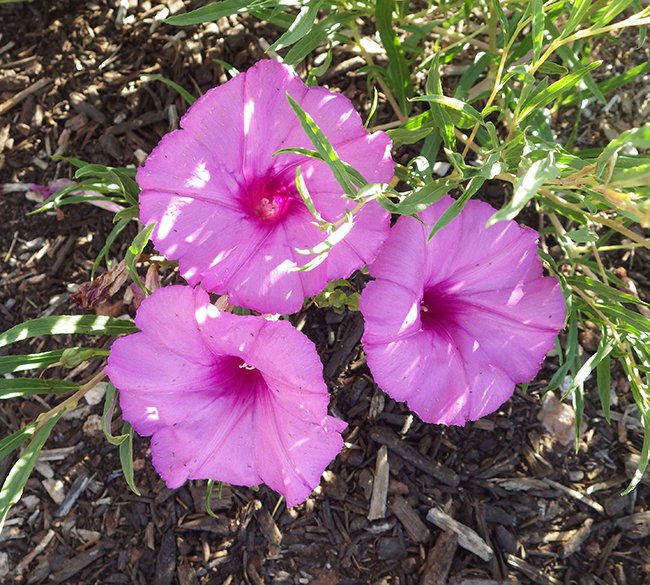
Bush Morning Glory (Ipomoea leptophylla)
What is Thanksgiving without sweet potatoes? Like bush morning glory, sweet potatoes belong to the genus Ipomoea, and like sweet potatoes, bush morning glory grows large, tuberous roots.
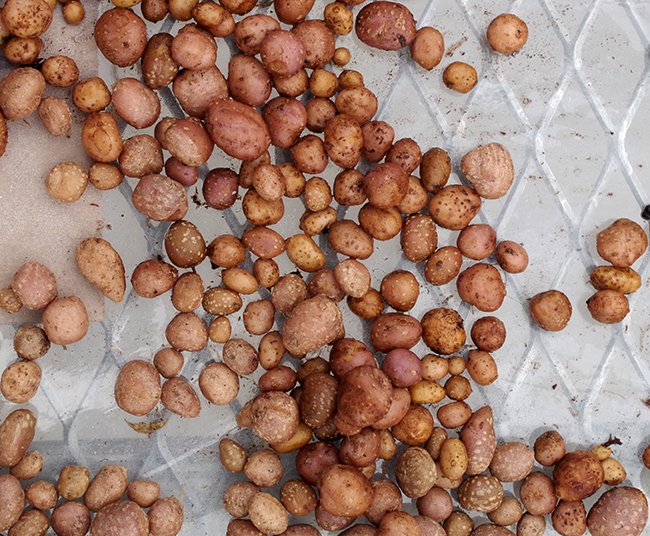
Four Corners Potato (Solanum jamesii)
Mashed potatoes coming up! The Four Corners potato is a species of potato that is native to Utah. It produces small tubers that range in size from a pea up to a bit larger than a marble.
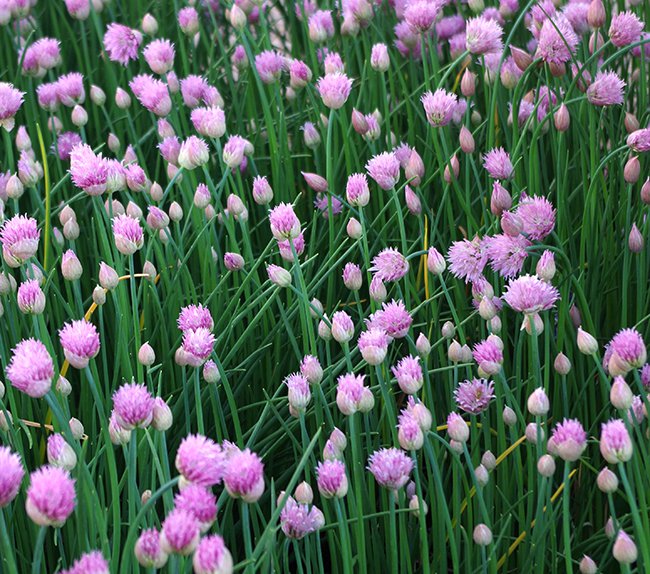
Chives (Allium schoenoprasum)
You can't have mashed potatoes without a sprinkling of chives on top. Chives are close cousins to onions, shallots, and garlic.
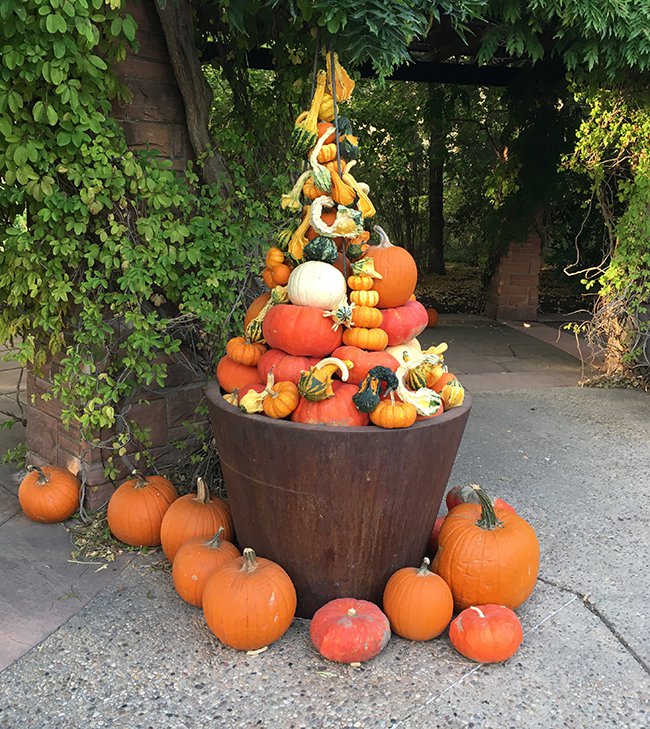
Pumpkins (Cucurbita pepo)
After you fill up on a delicious Thanksgiving banquet, somehow there's always room for a piece of pumpkin pie. While we didn't grow any pumpkins this year, I'm sure we have some leftover BOOtanical pumpkins kicking around somewhere.
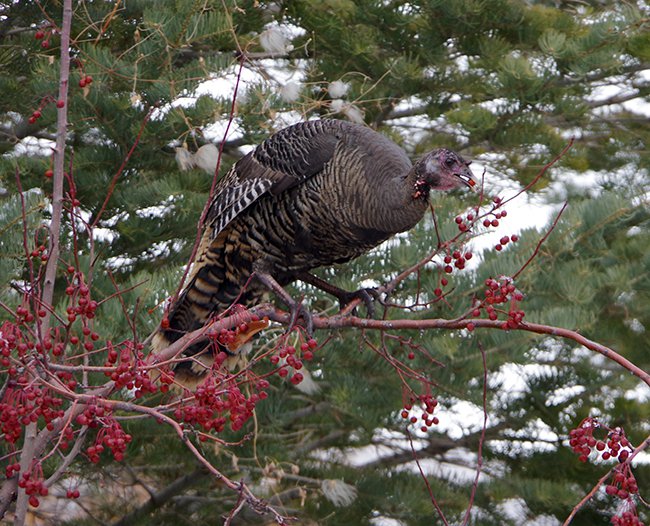
Rio Grande Turkey (Meleagris gallopavo intermedia)
Rio Grand turkeys are native to Texas, Oklahoma, Kansas, New Mexico, Colorado, Oregon and Utah. This one, along with many of its friends enjoyed wintering in Red Butte Garden in 2020.
Remember, we are closed on Thanksgiving Day, but are open again the next day. So bring your families and come walk off those Thanksgiving dinner calories.
Photos by Ja Morrison, MaryJo Dalton, Heidi Anderson, Heidi M. Simper, and Jason W. Baker